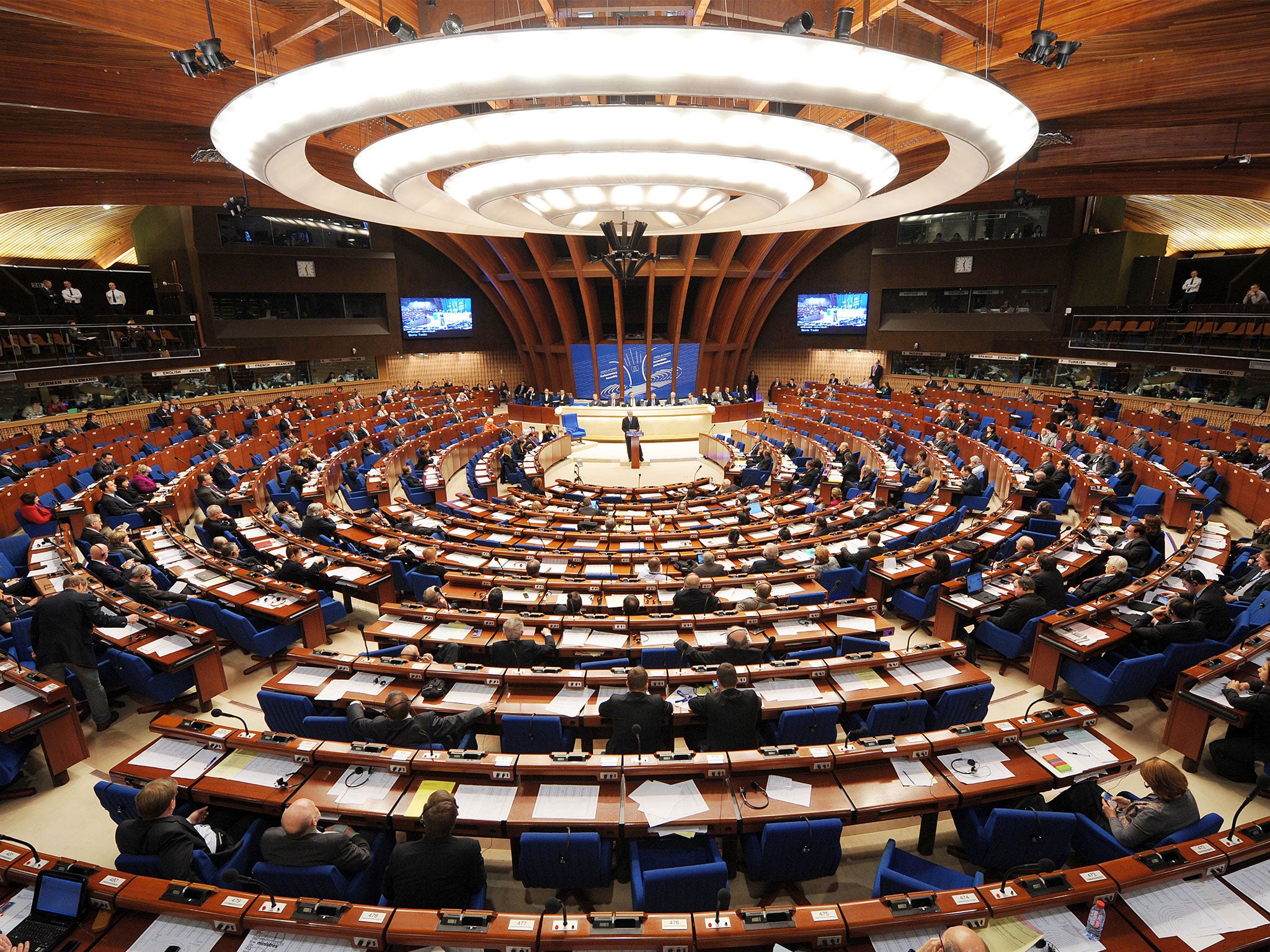Russia cancels payment to Council of Europe after claiming its delegates are being persecuted over Crimea
Moscow says it has had its rights 'restricted' since the 2014 annexation

Russia is cancelling its annual payment to the Council of Europe after claiming its 18 delegates are being “persecuted” in response to the annexation of Crimea.
A Foreign Ministry statement said Moscow’s contribution for 2017 was being withheld in response to a “rampant campaign…launched to persecute [Russian] parliamentarians”.
No future payments will be made until the rights of the Russian delegation to the Parliamentary Assembly of the Council of Europe (Pace) “are fully restored”, it added.
Foreign Minister Sergey Lavrov informed the Secretary General of the Council of Europe, Thorbjorn Jagland, by telephone on Friday morning.
Russia says the Council “restricted the powers of the Russian parliamentary delegation” in 2014 in order to “punish” it for the invasion of Crimea.
Last month the Council condemned the annexation as "illegal" and said it was committed to "the principle of peaceful settlement of disputes, to the independence, sovereignty and territorial integrity of Ukraine within internationally recognised borders and to the respect of human rights and fundamental freedoms".
The Russian statement said that since 2014, “the situation at the Pace has only been degrading: a rampant campaign has been launched there to persecute parliamentarians willing to normalise as soon as possible interaction with Russia within the Council of Europe".
"Given this situation, the Russian Federation made a decision to suspend the payment of its contribution to the Council of Europe for 2017 until the unconditional restoration in full of powers of the delegation of the Russian Federal Assembly (parliament) in Pace," it added.
Russia joined the bloc in 1996 with an annual budget contribution of €33m, out of a total budget of €454m.
The Council of Europe’s 47 members includes EU states as well as Russia, Turkey and Ukraine among others.
Its stated aim is to uphold human rights, democracy, rule of law as well as promote European culture.
The Council did not immediately respond to the announcement.
It comes as Vladimir Putin signed a decree to extend Russia’s counter sanctions until the end of 2018.
"We will see how our relations develop with the countries that imposed sanctions on us,” the Russian President said.
“As for endless expansion of sanctions, if our counterparts lift their economic sanctions, then we will do the same.”
Moscow’s tense relationship with the Council of Europe was tested earlier in June when the European Court of Human Rights, a body that sits within the Council, ruled that Russia’s so-called gay propaganda law reinforces “stigma and prejudice” and violates the right to freedom of expression.
The Russian government claimed “that regulating public debate on LGBT issues may be justified on the grounds of the protection of morals”.
But the judges said there was a “clear European consensus about the recognition of individuals’ right to openly identify themselves as gay, lesbian or any other sexual minority, and to promote their own rights and freedoms”.
Join our commenting forum
Join thought-provoking conversations, follow other Independent readers and see their replies
Comments
Bookmark popover
Removed from bookmarks